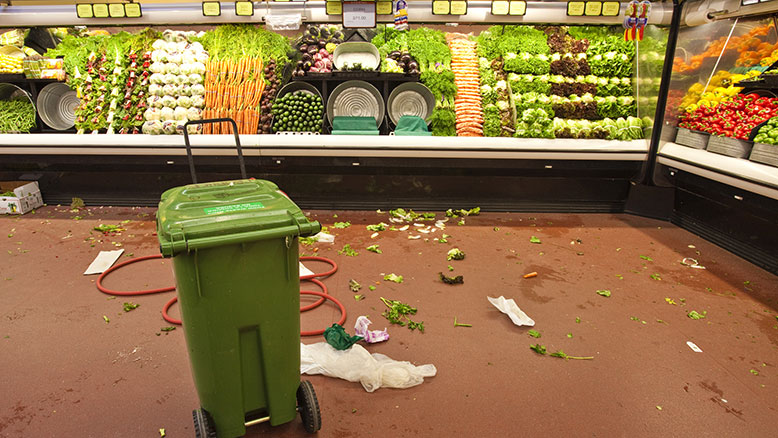The anti-food-waste label conquers shop windows

Nine months after its launch at the Salon de l’Agriculture 2023 in Paris, is the anti-food-waste label catching on with retailers? Answer: not yet. It’s a start: 31 establishments held them as of November 15, 2023, a minority within the network of food chains on the territory, according to the Ministry of Ecological Transition and Territorial Cohesion (french only), which is carrying this project set in stone by the 2020 AGEC (Anti-waste and circular economy) law. The wave promises to be more massive in 2024.
The AGEC law calls for wasted tonnages to be halved by 2025 or 2030 (depending on the player) compared with 2015. In France, food waste is at an all-time high: 9 million tonnes per year from producer to consumer, or 30 kg per person per year! AFNOR Certification is one of the certification bodies authorized to issue the label – on audit – to the first players concerned: distribution chains, wholesalers and food retailers. You can apply here. Very soon, the foodservice sector will be joining these professions, with an adapted standard (also in an AFNOR Spec format (french only), currently under construction).
Anti-food waste: 27 exemplary establishments
” The approach requires action on three pillars: procurement and purchasing, food marketing, and management of unsold food and donations, with staff awareness-raising at every stage,” explains Béatrice Poirier, head of the Environmental Energy Performance range at AFNOR Certification. You need to think in terms of a management system, which is easier to do if you’re already committed to ISO 9001 or ISO 14001. The vast majority of label-certified establishments do this well: the Ministry’s list shows 27 stores with level 3 certification (“exemplary”), compared with three with level 2 (“mastery”) and one with level 1 (“commitment”).
Most report an approach that “just makes sense “, with actions that flow naturally, ” sometimes actions that already existed, but which we formalized in a document to maximize their effect “, as Karine Besse, CSR manager at Coop Atlantique, a network of 194 stores in central-western France, describes it. And actions that inevitably lead to tangible savings: ” 30 to 50% for us,” says Dominique Combeau, manager of Hyper U in Saint-Junien (Haute-Vienne). Not to mention the 80,000 euros in tax savings! We went from 10 tons of waste to 2 tons in one year. “Solutions include sending unmarketable fruit and vegetables to a pig farmer, or meat products to a dog breeder. And, like many other chains, the store is listed on an app that sells unsold goods at low prices in the morning for the evening, in this case Phénix.
Stéphane Dolique, assessor for AFNOR Certification, confirms that the approach has given rise to a high level of satisfaction in the stores he visits on assignment. The only weak point: ” Many candidates initially underestimate the importance of acquiring a dedicated IT tool,” he says. This sometimes calls for the services of a consultant. The return on investment will be all the greater. Reminder: the follow-up audit takes place twelve months after the initial (remote) assessment audit, and the renewal audit thirty-six months later. Click here to watch the replay of the AFNOR Certification web-conference held on November 24, 2023, featuring testimonials from certified banners.